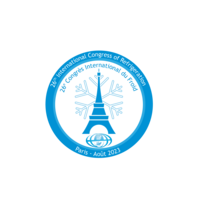
Document IIF
Évaluation des méthodes existantes de détermination de la charge en frigorigène pour les pompes à chaleur résidentielles à l'aide d'un banc d'essai virtuel.
Evaluation of existing refrigerant charge determination methods for residential heat pumps using a virtual test bench.
Numéro : 0157
Auteurs : JOUNAY M., CAURET O., TEUILLIERES C., TRAN C. T.
Résumé
Detecting and quantifying refrigerant leakages in residential heat pumps at an early stage is a major stake to maintain their efficiency and extend their lifespan. Several methods of leakage detection and refrigerant charge determination already exist. However, most focus on refrigerating or air-conditioning systems involving fixed-speed compressors and fixed orifice valves, lacking the dynamic aspects of more recent devices tending to smooth out the impacts of a leakage on the system.
This article first provides a brief insight on the state of the art of refrigerant charge determination methods. Two promising ones were selected, and a virtual test bench was developed and validated to evaluate them. The modeled system is an air-to-water heat pump for heating purpose involving a variable-speed compressor and an electronic expansion valve. These methods proved to be rather efficient on this numeric system, but further experimentation is required to assess them on a real device.
Documents disponibles
Format PDF
Pages : 11
Disponible
Prix public
20 €
Prix membre*
Gratuit
* meilleur tarif applicable selon le type d'adhésion (voir le détail des avantages des adhésions individuelles et collectives)
Détails
- Titre original : Evaluation of existing refrigerant charge determination methods for residential heat pumps using a virtual test bench.
- Identifiant de la fiche : 30031379
- Langues : Anglais
- Sujet : Technologie
- Source : Proceedings of the 26th IIR International Congress of Refrigeration: Paris , France, August 21-25, 2023.
- Date d'édition : 21/08/2023
- DOI : http://dx.doi.org/10.18462/iir.icr.2023.0157
Liens
Voir d'autres communications du même compte rendu (491)
Voir le compte rendu de la conférence
-
Refrigerant charge study for R454C as a replace...
- Auteurs : HOU W., FARD H. R., BURNS L., GROLL E. A., BRAUN J. E., ZIVIANI D.
- Date : 05/04/2023
- Langues : Anglais
- Source : 3rd IIR conference on HFO Refrigerants and low GWP Blends. Shanghai, China.
- Formats : PDF
Voir la fiche
-
Refrigerant charge optimization of a variable s...
- Auteurs : OTHMAN A., BAHMAN A. M., BARTA R. B., ZIVIANI D., GROLL E. A.
- Date : 10/07/2022
- Langues : Anglais
- Source : 2022 Purdue Conferences. 19th International Refrigeration and Air-Conditioning Conference at Purdue.
- Formats : PDF
Voir la fiche
-
Development of a dynamic model of a heat pump s...
- Auteurs : YUN Y., HAN D., CHANG Y. S.
- Date : 31/08/2021
- Langues : Anglais
- Source : 13th IEA Heat Pump Conference 2021: Heat Pumps – Mission for the Green World. Conference proceedings [full papers]
- Formats : PDF
Voir la fiche
-
Approaching optimal high pressure by charge man...
- Auteurs : HE Y. J., LIANG X. Y., CHENG J. H., SHAO L. L., ZHANG C. L.
- Date : 31/08/2021
- Langues : Anglais
- Source : 13th IEA Heat Pump Conference 2021: Heat Pumps – Mission for the Green World. Conference proceedings [full papers]
- Formats : PDF
Voir la fiche
-
Development of a modular refrigeration cycle to...
- Auteurs : KLEBIG T., HORST J., VERING C., VENZIK V., MÜLLER D.
- Date : 13/06/2022
- Langues : Anglais
- Source : 15th IIR-Gustav Lorentzen Conference on Natural Refrigerants (GL2022). Proceedings. Trondheim, Norway, June 13-15th 2022.
- Formats : PDF
Voir la fiche
